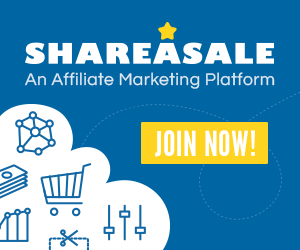In the ever-evolving world of social media, Facebook stands as a towering giant. Launched in 2004 by Mark Zuckerberg, Facebook has grown from a college networking site to a global platform connecting billions of people. But with new social networks emerging and evolving, is Facebook still worth your time? In this comprehensive guide, we'll dive deep into the pros and cons of Facebook, explore its impressive statistics, compare it to other top social networks, and help you decide whether joining (or staying) on Facebook is the right choice for you.
Facebook: By the Numbers
Before we delve into the pros and cons, let's look at some eye-opening statistics that highlight Facebook's dominance:
- User Base:
As of 2024, Facebook boasts over 2.9 billion monthly active users, making it the largest social network globally.
Demographics:
Facebook is popular across all age groups, but it's particularly strong among users aged 25-34, followed closely by the 35-44 age group.
- Revenue:
In 2023, Facebook's parent company, Meta, reported an annual revenue of $117 billion, largely driven by advertising.
Daily Engagement:
More than 1.8 billion people use Facebook daily, engaging with content, connecting with friends, and participating in groups.
The Pros of Facebook
1. Massive User Base:
- With nearly 3 billion users, Facebook offers an unparalleled opportunity to connect with a vast and diverse audience.
2. Robust Advertising Platform:
- Facebook Ads provide highly targeted advertising options, allowing businesses to reach specific demographics, interests, and behaviors.
3. Comprehensive Features:
- From messaging and live video streaming to marketplace and groups, Facebook offers a wide range of features that cater to personal, business, and community needs.
4. Community Building:
- Facebook Groups are powerful tools for building communities around shared interests, whether it's a hobby, profession, or social cause.
5. Event Promotion:
- With Facebook Events, users can easily create, promote, and manage events, reaching a large audience and driving engagement.
6. Integration with Other Platforms:
- Facebook seamlessly integrates with Instagram, WhatsApp, and Messenger, offering a cohesive experience across multiple social networks.
The Cons of Facebook
1. Privacy Concerns:
- Facebook has faced numerous privacy scandals, including the Cambridge Analytica data breach, raising concerns about data security and user privacy.
2. Algorithm Changes:
- Frequent changes to the News Feed algorithm can affect the visibility of posts, making it challenging for businesses and content creators to maintain consistent reach.
3. Ad Saturation:
- The platform's heavy reliance on advertising can lead to a cluttered user experience, with many users reporting ad fatigue.
4. Misinformation:
- Despite efforts to combat fake news, misinformation and harmful content can still spread rapidly on the platform.
5. Decline Among Younger Users:
- While still popular, Facebook has seen a decline in usage among younger demographics (teenagers and young adults) who prefer platforms like TikTok and Snapchat.
Facebook vs. Other Social Networks
Instagram:
- Instagram, also owned by Meta, focuses on visual content and is hugely popular among younger users. It's excellent for branding and influencer marketing but lacks the comprehensive community-building tools of Facebook.
Twitter:
- Twitter is known for real-time updates and is a go-to platform for news, politics, and celebrity interactions. However, it has a smaller user base (around 450 million active users) and lacks the extensive feature set of Facebook.
LinkedIn:
- LinkedIn is the premier social network for professionals, offering robust tools for networking and job searching. It's less suitable for personal socializing and more focused on career development.
TikTok:
- TikTok's explosive growth (over 1 billion users) is driven by short-form video content, appealing mainly to Gen Z. While great for viral content, it doesn't offer the same breadth of features as Facebook.
-Snapchat:
- Snapchat's ephemeral content is popular among younger users. It excels in private messaging and AR filters but doesn't match Facebook's reach or community features.
Reddit:
- Reddit is a hub for niche communities and discussions. It's great for deep engagement in specific topics but lacks the broad appeal and advertising capabilities of Facebook.
Conclusion: Should You Join Facebook?
Facebook's unparalleled reach, comprehensive features, and powerful advertising tools make it a valuable platform for both personal use and business growth. However, privacy concerns, algorithm changes, and the decline among younger users are significant drawbacks.
Why You Should Join:
- If you want to connect with a vast network of people.
- If you're a business looking for targeted advertising options.
- If you're interested in community building through groups and events.
Why You Might Pass:
- If privacy is a major concern for you.
- If you prefer platforms with a younger demographic.
- If you're looking for less ad-saturated environments.
In the end, the decision to join or stay on Facebook depends on your specific needs and preferences. Weigh the pros and cons, consider your goals, and choose the social network that best aligns with your objectives. Happy networking!
Tags:Facebook, Facebook pros, Facebook cons, Facebook statistics, social media, Facebook popularity, social networking, Facebook vs other networks, Facebook user base, Facebook advertising, Facebook privacy concerns, Facebook algorithm changes, Facebook ad saturation, Facebook misinformation, Facebook demographics, Instagram vs Facebook, Twitter vs Facebook, LinkedIn vs Facebook, TikTok vs Facebook, Snapchat vs Facebook, Reddit vs Facebook, social media trends, Facebook community building, Facebook groups, social media marketing, social media engagement, Facebook events, social media platforms comparison.

No comments:
Post a Comment